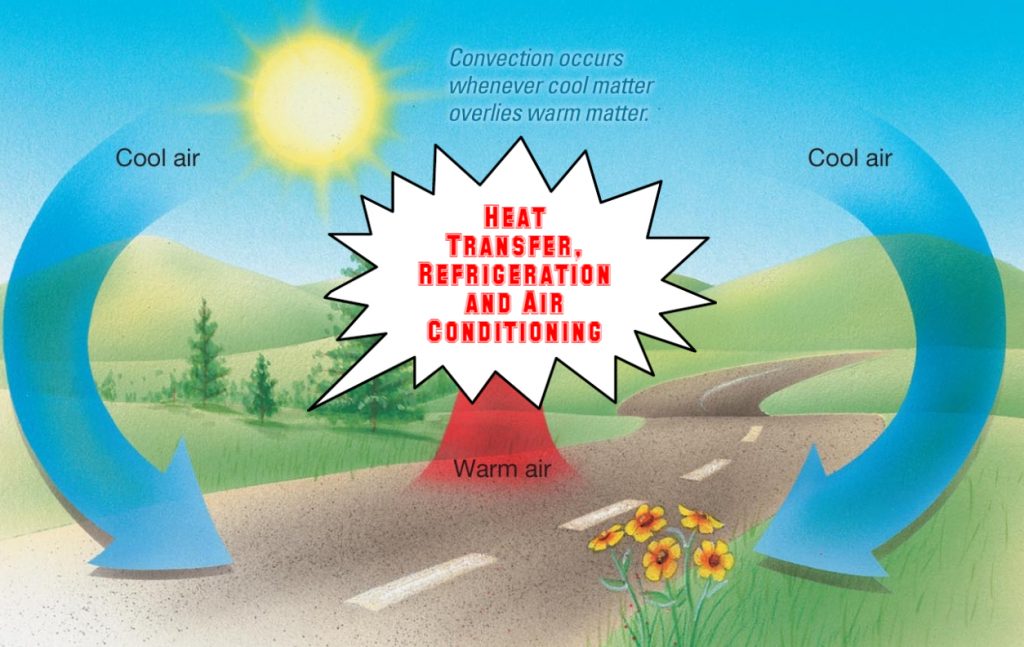1. The centrifugal compressors are generally used for refrigerants that require
A. small displacements and low condensing pressures
B. large displacements and high condensing pressures
C. small displacements and high condensing pressures
D. large displacements and low condensing pressures
2. The water, alcohol and ammonia have same refrigerating effect at different altitudes.
A. Yes
B. No
3. The automobile radiator is a heat exchanger of
A. parallel flow type
B. counter flow type
C. cross flow type
D. regenerator type
4. In mechanical refrigeration system, the refrigerant occurs as liquid between condenser and expansion valve.
A. True
B. False
5. A heat pump working on a reversed Carnot cycle has a C.O.P. of 5. It works as a refrigerator taking 1 kW of work input. The refrigerating effect will be
A. 1 kW
B. 2 kW
C. 3 kW
D. 4 kW
6. The curved lines on a psychrometric chart indicates
A. dry bulb temperature
B. wet bulb temperature
C. dew point temperature
D. relative humidity
7. During humidification process, __________ increases.
A. wet bulb temperature
B. relative humidity
C. dry bulb temperature
D. specific humidity
8. A pressure gauge on the discharge side of a refrigerant compressor reads too high. The reasons will be
A. lack of cooling water
B. water temperature being high
C. dirty condenser surface
D. all of these
9. The counter-current flow heat exchanger can transfer __________ heat than parallel flow heat exchanger.
A. less
B. more
10. The freon group of refrigerants are
A. halo-carbon refrigerants
B. azeotrope refrigerants
C. inorganic refrigerants
D. hydro-carbon refrigerants
